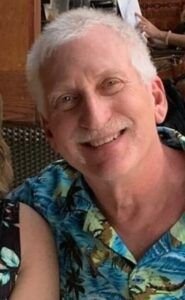
The recent passing of Rock Lake Conservation District supervisor David Johnson gives me pause in several ways. We are the same age. We graduated from high school in the same year. We both have connections to the land. We are both a part of our Washington State conservation community.
Losing someone you know is much more impactful than when people pass that you don’t know pass. David was well-liked by friends, by students, and by the people he worked with to conserve natural resources. It is remarkable that his farm was a 5th generation farm that now passes to the 6th generation. Read some comments left by those who knew him well in the guestbook related to his obituary.
I’m also impressed that students he once taught are weighing in with their positive memories. This also hits home for me because my spouse taught music from kindergarten through high school, and wherever we were, it seemed that students (current and past) would see her in a store and rush up to give her a big hug. In our conservation community, we often talk about leaving a legacy. Teachers do that every day with every student they are able to reach and teach. I’ve often thought that conservation districts are really community educators, bringing our strongly held philosophy of local governance and voluntary conservation to the people around us. The more people we can reach, the more conservation will get put on the ground.
As I talk with people who knew David well, I am struck by three characteristics that David seemed to embody: kindness, courage, and conscience. David exhibited kindness in many venues. He demonstrated courage just by being a farmer, but he was courageous in other ways, too. His conscience came to the fore as he worked closely with the Rock Lake Conservation District board and staff, helping to expand programs and services available to producers in his community.
Teachers create legacies in all the people they reach. Conservation districts do the same, acting both to educate their neighbors and to put conservation practices to work on the ground.
It’s worth pausing for a moment to consider the legacy you will leave for future generations. What will they remember from your work today? How will it affect their lives? Will they support the concepts we believe in and carry them forward for those who come after them?
While reporting David’s passing is a sad moment for me, it also helps me remember what we are all trying to do in our daily work on the front lines of conservation. I hope some of David’s energy finds its way into your conservation work and helps you continue to achieve success in your local conservation work.
All of us at WACD are saddened by David’s passing and our thoughts are with his family and friends.
Editor’s note: Many contributors to the success of Washington State’s conservation district are memorialized in the Washington Conservation Society‘s Leaving a Legacy book. We invite you to view the book and consider supporting the good work of the Society!
